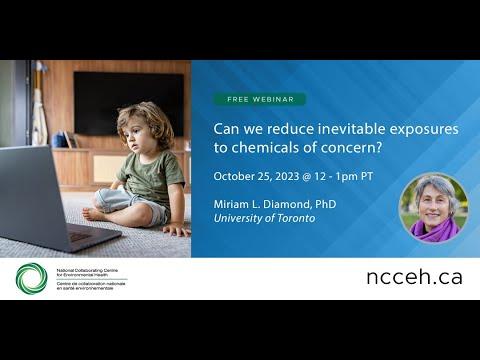Can we reduce inevitable exposures to chemicals of concern?
Miriam L. Diamond, PhD
Abstract
Populations are inevitably and inequitably exposed to chemicals of concern, where exposures have been linked to population-wide adverse health effects. The inevitability of exposure comes from basic thermodynamic theory coupled with high chemical production volumes and human activities. Reasons for inequitable exposure are insufficiently understood. Chemicals management programs are challenged to limit exposures and population-wide adverse effects because of the unrelenting growth in chemical production and proliferation of the number of chemicals produced. Further, the risk assessment framework used for chemicals management is not sufficiently protective. I will present four reasons for, and offer five solutions to redress this failure of chemicals management, ranging from promoting hazard and not risk assessment, to putting a hard cap on chemical production.
Speaker
Miriam L. Diamond, a professor at the University of Toronto, has advanced knowledge of chemical emissions, their transport processes, and resultant human and ecological exposure, and chemicals management policy. This work has been published in over 200 peer-reviewed articles and chapters, in addition to receiving media attention. Diamond is an Associate Editor of the journal Environmental Science and Technology, was the co-chair of the Canadian Chemical Management Plan Science Committee from 2017 to 2021, is the Vice-Chair of the International Panel on Chemical Pollution, and is the chemicals and waste member of the Scientific and Technical Advisory Panel of the Global Environment Facility. She is a Fellow of the Royal Society of Canada, and the Society of Environmental Toxicology and Chemistry.






